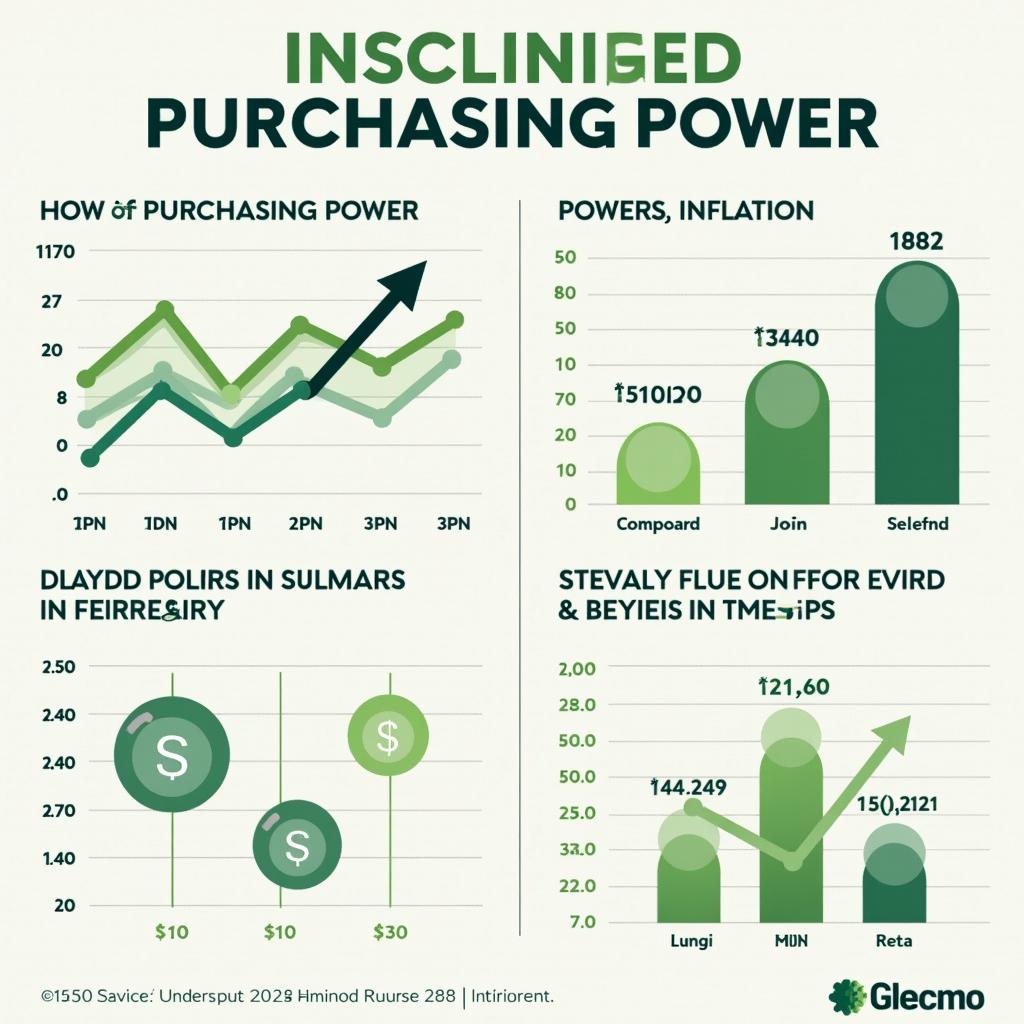The topic of inflation’s impact on savings has become increasingly prevalent in IELTS Writing Task 2, particularly given global economic uncertainties. Understanding how inflation affects consumer purchasing power is crucial for achieving a high score on this topic, which has appeared in various forms over the past few years.

Analysis of Task 2 Question
Some economists argue that high inflation rates significantly decrease the value of people’s savings, while others believe it can benefit the economy. Discuss both views and give your opinion.
This question requires candidates to:
- Examine both positive and negative effects of inflation on savings
- Present balanced arguments
- Provide a clear personal stance
- Support ideas with relevant examples
Band 8-9 Sample Essay
The debate over how high inflation affects purchasing power has garnered significant attention among economists. While some experts argue that inflation devalues savings substantially, others maintain that it can stimulate economic growth. I believe that while moderate inflation might have some economic benefits, high inflation rates generally harm individual savings and economic stability.
High inflation undeniably erodes the value of saved money. When prices rise rapidly, the purchasing power of accumulated savings diminishes, affecting particularly retirees and those on fixed incomes. For instance, if inflation reaches 10% annually, $100,000 in savings would effectively be worth only $90,000 in real terms after just one year. This impact of inflation on middle-class savings can be devastating, forcing many to postpone retirement or reduce their standard of living.
However, proponents of inflation argue that it can benefit the economy in several ways. Moderate inflation encourages spending and investment rather than holding cash, potentially stimulating economic growth. Furthermore, it can help reduce the real burden of debt for both governments and individuals, as the actual value of debt decreases over time. For example, countries with high public debt often find some relief through controlled inflation.
In my view, while modest inflation might serve some economic purposes, high inflation rates do more harm than good. The negative impact on savings can destabilize retirement planning and create financial anxiety among the population. Moreover, how inflation erodes fixed income investments can lead to reduced investment in crucial sectors of the economy.
Band 6-7 Sample Essay
Inflation’s effect on savings is a topic that many economists discuss today. Some people think high inflation is very bad for people’s savings, while others say it helps the economy grow. I will discuss both sides and give my opinion.
First, high inflation makes saved money worth less. When prices go up fast, people cannot buy as many things with their savings as before. For example, if someone saves $1000 and inflation is 8%, they can only buy things worth $920 next year. This is very hard for old people who live on their savings.
However, some economists say inflation can be good. They think it makes people spend money instead of keeping it in banks. This helps businesses grow and creates more jobs. Also, when there is inflation, people who borrowed money find it easier to pay back their loans.
I think high inflation is mostly bad for people and the economy. While some inflation might help economic growth, too much inflation makes it hard for people to save money for their future. It also makes people worry about their financial security.
Key Vocabulary
- Erode (v) /ɪˈrəʊd/ – to gradually reduce or destroy
- Purchasing power (n) /ˈpɜːtʃəsɪŋ ˈpaʊə/ – the ability to buy goods and services
- Monetary policy (n) /ˈmʌnɪtri ˈpɒləsi/ – government or central bank actions affecting money supply
- Depreciation (n) /dɪˌpriːʃiˈeɪʃn/ – reduction in value over time
- Fixed income (adj) /fɪkst ˈɪnkʌm/ – income that doesn’t vary
- Economic stability (n) /ˌekəˈnɒmɪk stəˈbɪləti/ – steady economic conditions
- Stimulate (v) /ˈstɪmjuleɪt/ – to encourage or cause growth
Conclusion
To practice your writing skills on this topic, try composing your own essay addressing similar themes such as:
- The relationship between inflation and economic growth
- Government measures to control inflation
- The impact of inflation on different social groups
Share your practice essays in the comments section for feedback and discussion with fellow IELTS candidates.